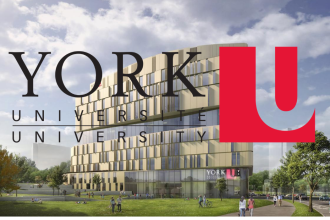Are you looking forward to becoming a sound engineer? If yes, you must possess strong research and pitching skills and knowledge of sound equipment, acoustics, and musicality. Anyone who wants to land a job in audio engineering needs training. Pursuing a Live Sound program equips you with the necessary skills for a successful career in audio production. The course provides hands-on experience, hones new technical skills, develops your creativity, and offers valuable insights into the media production business.
A Live Sound course covers various subjects to help you become an expert in working with industry-standard audio software and equipment to create the sound for live events. Live Sound is a 12-month course divided into three terms. This one-year course covers the following subjects:
| Term 1 | Term 2 | Term 3 |
| Venue Acoustics | Sound Equipment Set Up | Music Industry and Professional Activities |
| Stage Plot and Technical Rider | Prevention in the Performing Arts | Audio Equipment Maintenance |
| Live Sound: Shows and Conferences | Live Show Recording | Live Sound Internship |
| Audio System Design | Shows and Festivals Planning |
The audio industry is highly dynamic. This global field requires experts in cutting-edge technology. The Live Sound program is tailor-made for those serious about making a career in the audio production and creative media industries. Are you prepared to join them?
Admission requirements for a Live Sound course in Canada
Audio engineers are responsible for producing a recording or a live performance. They help to create a recording or a live performance. Therefore, a sound engineer requires a wide range of technical acumen to succeed in this dynamic and cut-throat environment. Studying a Live Sound course provides skills to record live concerts, network with people, and excel in the audio industry. Here are the requirements you need to fulfill to study a Live Sound course in Canada:
- You must have a diploma or degree in film/video production, theatre, production, or a relevant field.
- You can also hold a Diploma in Vocational Studies.
- Building a portfolio is essential.
- Online interview
Studying Live Sound offers a better understanding of designing audio systems in various environments. It also gives you the confidence to plan a concert or music festival. Additionally, learning live sound enables you to expand your professional prospects by allowing you to work on contracts and festival planning.
Over to you
Live sound engineers are in high demand due to the continuing exponential growth in the music and entertainment industry. The US Bureau of Labor Statistics (BLS) states that the overall employment for sound engineers will increase by 12 percent over the decade. Earning a degree in live sound opens doors to lucrative careers in live events, studio, broadcast, advertising, and foldback.
You can consider Canada to earn a degree in live sound as the nation is home to several top-ranked educational institutions that teach within the professional quality recording studio environment. Apply for the course in Canada to learn in a professional environment and launch the career of your dreams.
This article is written by Monika Sinha.














